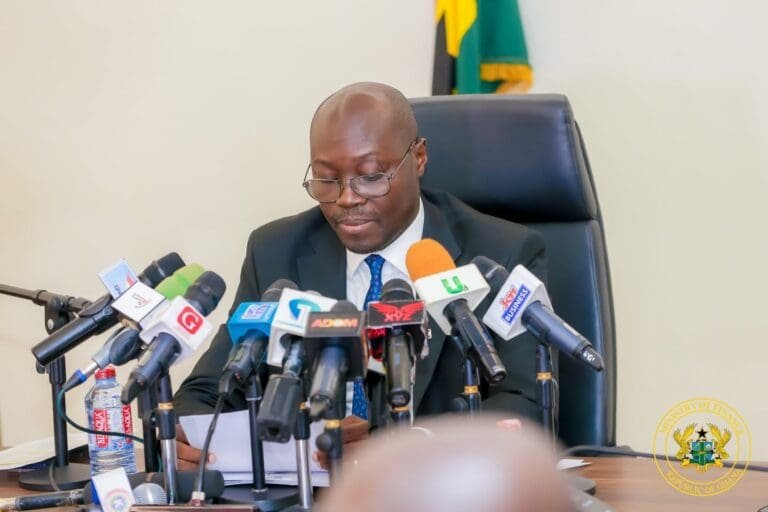Ghana has successfully completed a $349.5 million Eurobond payment, according to an official statement from the Ministry of Finance. This payment was processed through the Bank of Ghana and supported by international correspondent banks. It covers scheduled coupon payments for bondholders who joined the country’s 2024 debt exchange program.
This marks the third significant Eurobond payment since Ghana restructured about $13 billion in external debt last year. The country continues to fulfill its international financial commitments on time.
The Ministry highlighted that Ghana has now paid a total of $1.17 billion in Eurobond debts since the completion of its debt restructuring in October 2024. The first repayment of $475.6 million was made in October 2024. A second payment of $349.52 million followed in January 2025. This latest $349.52 million installment keeps Ghana current with all scheduled 2025 Eurobond obligations.
Ghana’s finance officials view this latest payment as a step toward building trust with global investors. The Ministry noted that a further $1.41 billion in Eurobond payments is scheduled for 2026. Meeting these obligations is expected to enhance the country’s credit outlook and reduce financial risk.
The Finance Ministry stated that the consistent repayments confirm the government’s dedication to sound debt management, economic stability, and open cooperation with international creditors. They also expect the timely payments to positively influence Ghana’s credit ratings and foreign exchange reserves.
By making this payment on schedule, Ghana signals its continued focus on restoring investor confidence. It also aligns with the country’s broader strategy to support recovery from past financial challenges. Officials believe this strengthens the ongoing economic recovery program.
Market analysts in Ghana have described the payment as a key milestone in the country’s financial comeback. They added that the move could help reduce the cost of future borrowing. According to experts, Ghana’s financial signals are improving, and regular payments may make it easier for the country to access better loan terms.
In line with its current fiscal policy, the government also plans to resume bilateral debt servicing in 2026. The next scheduled Eurobond coupon payment is due in August 2025, as part of a staggered repayment plan.
The Ministry emphasized that the transaction has already been included in the Bank of Ghana’s broader reserves and liquidity strategy. This approach is aimed at reducing shocks to the local market and protecting economic gains.
Government officials continue to express confidence in Ghana’s financial roadmap. They highlight the importance of regular debt service payments in showing that the country is serious about reform. The current efforts are seen as necessary to support long-term growth, rebuild trust with investors, and improve credit access for the private sector.
Through these actions, Ghana seeks to position itself as a reliable partner in global finance. The Ministry reaffirmed that its commitment to financial reform will remain strong in the months ahead. It also said future steps will be guided by transparency and cooperation with all stakeholders.







